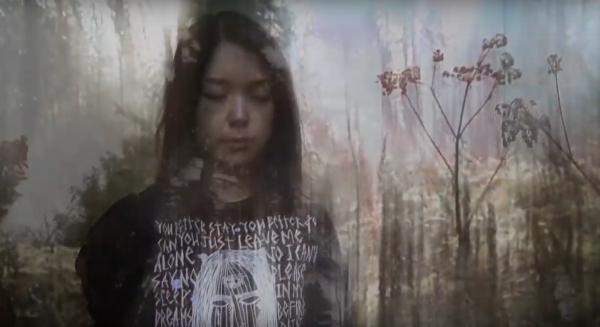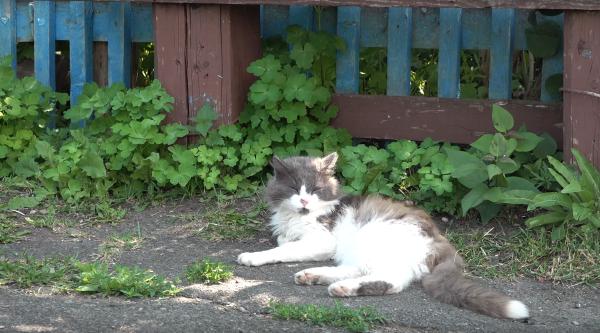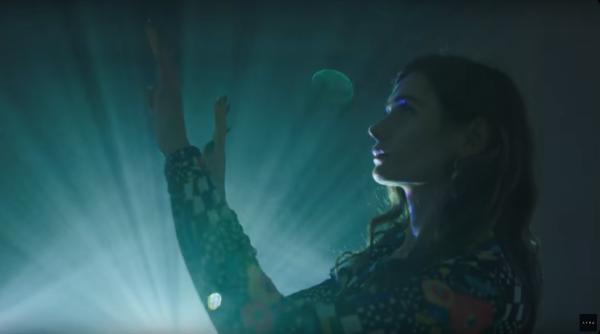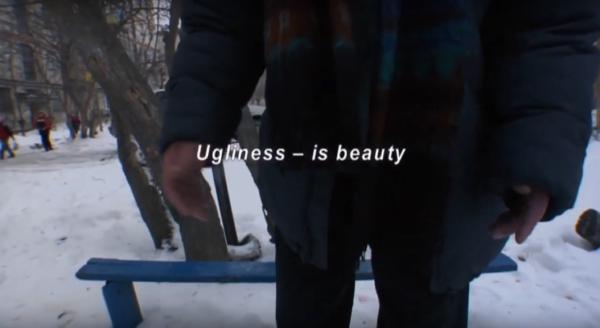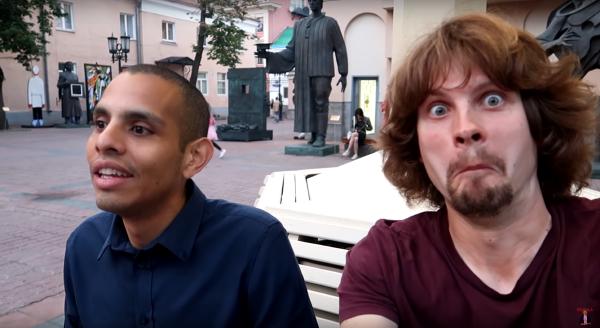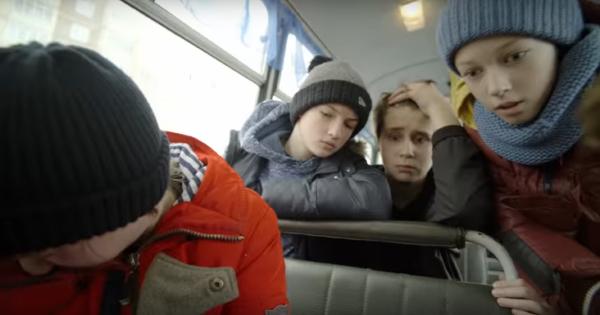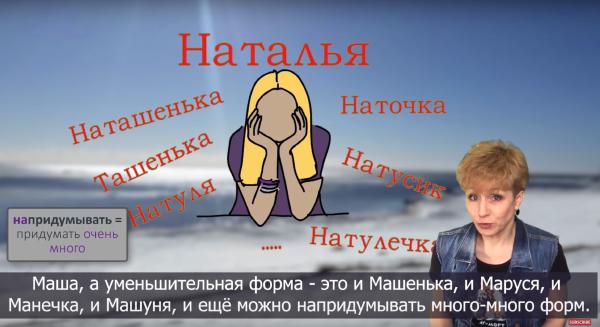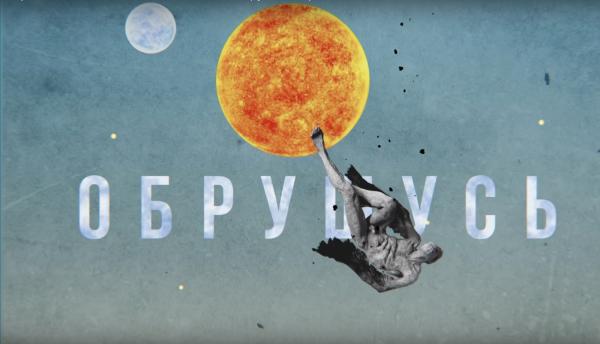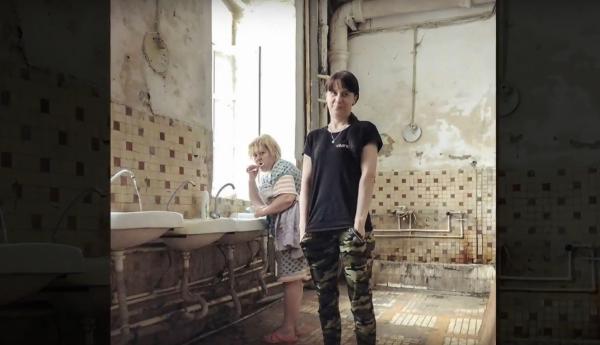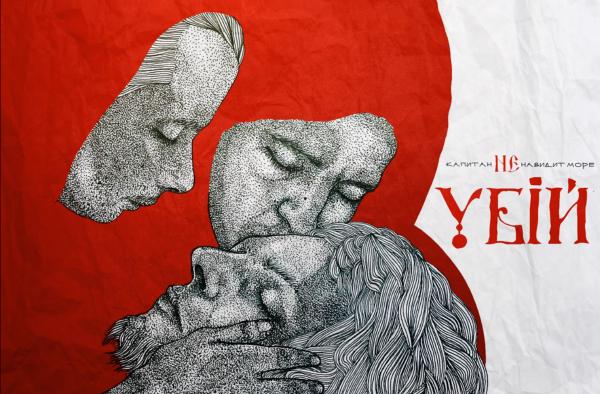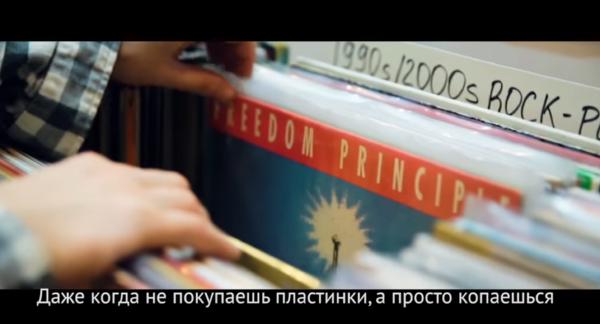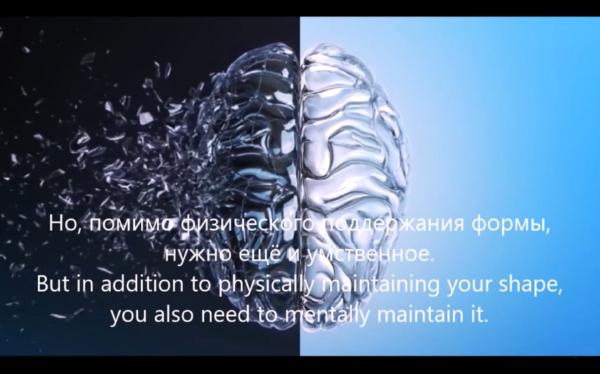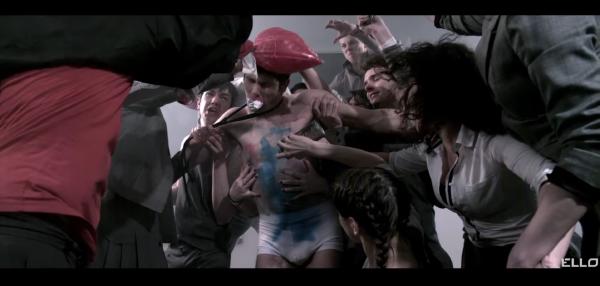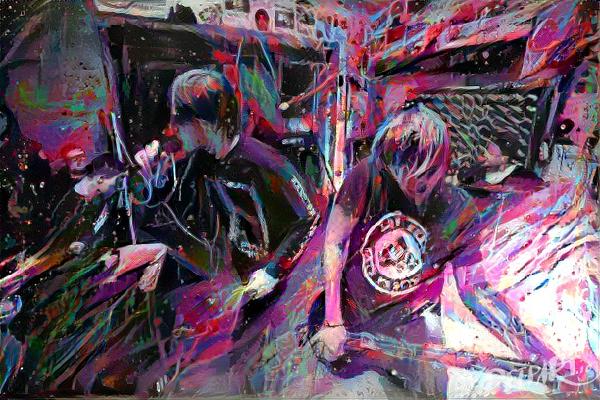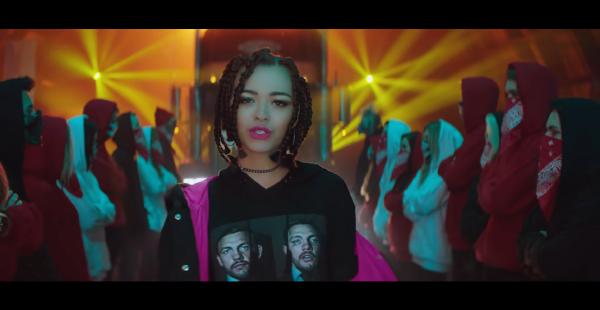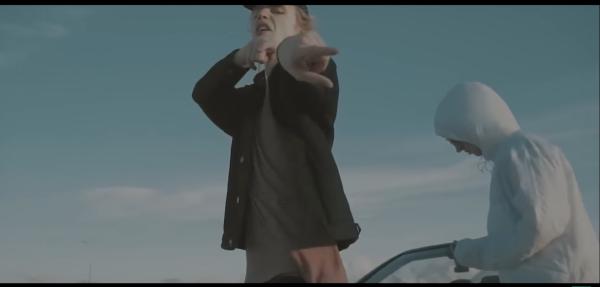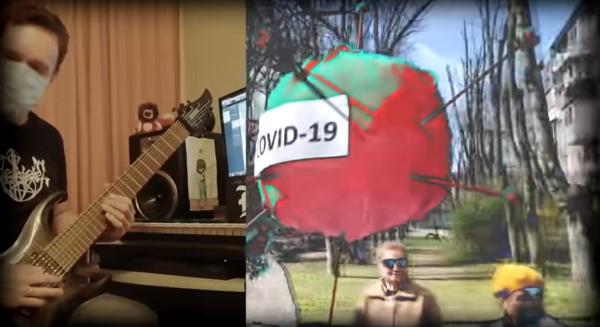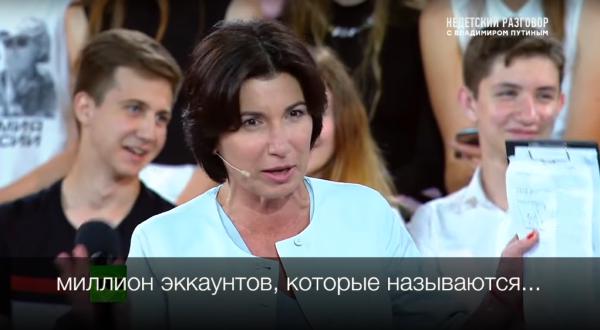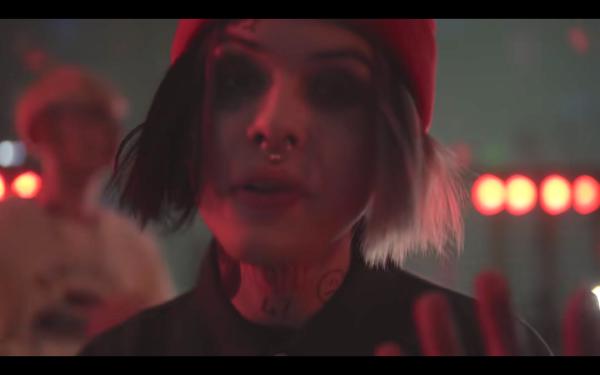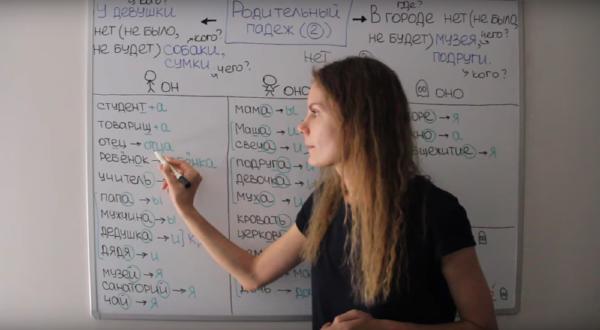Lucidvox 3x
Music
Lucidvox (from Moscow) self-describes (on
VK) as ‘psyched-out krautpunk, noisepop / lucidcore’. No men involved; four women – Anna, Alina, Galla, and Nadezhda – do the work. You may have seen them before. Lucidvox crosses borders more often than the average Russian band, even making it to our country.
It may not seem like an exciting topic, but three productions released recently (between April and July 2020) offer an insightful look at Russian villages that you should watch. Varlamov, RussianPlus, and Russian from Russia explore the заброшенные (abandoned), revived, and уснувшими (sleeping) villages, reflecting on the state of the Russian countryside.
Луна (Luna) 3x
Music
Not to be confused with the
Korean or
Bulgarian Luna, nor with
Louna from Moscow, or
Luna the Spanish flamenco singer from Overloon. All the light on the Ukrainian
Kristina Viktorovna Gerasimova (1990), from Kyiv but born in Dresden (East Germany), and as Luna/Луна sings in Russian.
Boris Ryzhy (1974-2001)
Country
A poet whose death is often discussed more than his life or work. Just shy of joining the
Club of 27, but only by a little. In September 2001,
Boris Ryzhy would have turned 27, but in March, he took his own life. From his Завещание (Testament): Договоримся так: когда умру, ты крест поставишь над моей могилой: let’s agree on this: when I die, you will place a cross over my grave.
Is Grammar Unnecessary?
Language
This might sound like music to many ears: learning Russian without grammar. Is this a case of ‘too good to be true,’ or is it really possible? The advice of
Benjamin Rich (Bald and Bankrupt on YouTube) is clear. Forget grammar. In fact, (from the description under the video embedded here), ‘throw away the grammar books and you’ll make massive progress very quickly.’
Ploho 3x
Music
Surely many good things come from
Novosibirsk. Although, for example, vlogger Varlamov is not very positive about some parts of it. Novosibirsk is for the sad ones (
для грустных), in Novosibirsk is hell (
ад в Новосибирске). From that city also comes Ploho, the Anglicized spelling of плохо, which means bad. Only the word, not the band. The band may sound cold to some, but it’s certainly not plócha.
A Russian name consists of three parts: a first name (имя), a patronymic or father’s name (отчество), and a last or family name (фамилия). The abbreviation Ф.И.О. (фамилия, имя, отчество) is well-known to Russians and appears on their passports, driver’s licenses, and related documents.
The summer of 2019 in Russia (like 2020) was very turbulent. Journalist
Ivan Golunov was arrested and (after much uproar) released again, opposition candidates were denied entry into the
Moscow City Duma elections (on September 8), and protests broke out. Volodya Kotlyarov, lead singer of PornoFilms (Порнофильмы), picked up his guitar and sang.
Тараканы! 3x
Music
Believe it or not (check it on
Google), but тараканы means cockroaches. The band originally called themselves Четыре таракана (four cockroaches), with singer Yuri Lenin. Now, they are
Тараканы! (or Tarakany, with an exclamation mark), led by Dmitry Spirin. Punk rockers (from Moscow) since 1991. Like cockroaches, they’re tough to kill.
Dmitry Markov (with an iPhone)
Country
Described as (and see especially)
The photographer using an iPhone to document life on the margins of Russian society (rferl, 2020) and
Photographer Documents the Gritty Streets of Russia With an iPhone (My Modern Met, 2018). Photos can also be seen in a collage (4 m) below, with something similar but longer (13 m) in
Dmitry Markov – Дмитрий Марков #Черновик (Arthur Erhan, 2018).
Captain hates the sea, that’s how the band name translates. Kapitan Nenavidet Morje. A band from Череповец or
Cherepovets, with more info via the links below. Starting with a suggestion to stop smiling, and that sounds good.
Переверни Пластинку = flip the record. In English, Flipside. Documentary (2016) about vinyl in Russia. And about records when vinyl was either unavailable or banned: pressed onto X-rays. See
How X-rays were used to smuggle banned music into the Soviet Union (Vice/Noisey, 2017) and
When Rock Was Banned in the Soviet Union, Teens Took to Bootlegged Recordings on X-Rays (Smithsonian Magazine, 2015).
Words ending in ь
Language
As mentioned
here, it’s usually not difficult to determine whether a word is masculine, feminine, or neuter in Russian. It only becomes tricky when a word ends with a soft sign, the мягкий знак or ь, and there are many such words. A useful tip: they are never neuter. As for the rest — masculine or feminine — these rules will guide you.
Герой нашего времени (Hero of Our Time) is a novel (from 1840) by
Mikhail Lermontov, but you probably already knew that, and if not, check
Wikipedia. If you change the й to и, you turn the hero into heroes (an explanation of plurals in the nominative case can be found
here), and we’re right where we need to be: with the song (from 2018) with a striking video by НАИВ (or NAIV, Naïve).
Dora, or Дора, also known as mentaldora, actually Дарья Шиханова, comes from Саратов (
Saratov) and was born in 1999. A young twentysomething, but presents herself as even younger. She describes her music as ‘cute rock,’ and that probably has something to do with it.
Yury Dud’s Kolyma
Country
Колыма – родина нашего страха = Kolyma – birthplace of our fear. Documentary (made for YouTube) about Russia’s darker (or missing) pages. It did not go unnoticed, nor unchallenged. See, for example,
Gulag Documentary Takes Russian YouTube by Storm (The Moscow Times, April 30, 2019).
Learning Russian during the pandemic
Language
For Russian hobbyists and students, the pandemic (is? was? will be?) not all bad. In many cases, some extra time became available, and what better way to spend it than learning русский.
Korsika – Rage
Music
Ярость means rage. It is not only dangerous for the one it is directed at, but also for the one consumed by it. Because it grips you by the throat (держит тебя за горло), not a drop of oxygen (ни капли кислорода), chances of escape are close to zero (шансы уйти под ноль). The grip of rage is painful (держит тебя так больно), thoughts taste like blood (мысли со вкусом крови) and no, this is not a movie (нет, это не кино).
Convince – Religion
Music
Being convinced of one thing, swearing by another, with religion you can go in any direction. The guys from ‘Venomous d-beat crust hardcore beast’ Convince (Moscow) are convinced that it all means nothing. To say the least. Their Религия (Religion) is more anti-religion.
Sabi Miss (Сабина Ахмедова,
Rostov-on-Don 1999) is going to put her phone on silent mode. And strongly advises, if it’s still necessary: don’t call me (не звони мне) and don’t write me (не пиши мне), all directed at a сука (a rather impolite term). Not very flattering, but it does rhyme with без звука (without sound). Поставлю трубку на режим «Без звука»: I’m putting my phone on silent mode.
Дельфин 3x
Music
A Russian problem is a проблема. The plural is проблемы – problems usually don’t come alone. Pharaoh (or Фараон, meaning pharaoh) and The Chemodan Clan are dealing with them too.
Misery. At least for those who don’t like winters and Mondays. Каждый день зима: every day is winter. Каждый день понедельник: every day is Monday. That’s how время без тебя (time without you) is, and оно меня убивает (it’s killing me).
Russian Corona Song
Music
The corona song in the Netherlands was not a success, to put it mildly. Let’s not waste more words on it. If you’re curious, you can listen to
Peter Pannekoek again. How can you
be cynical about contributing to good causes? In this case, how could you not.
From earlier (2017) and corona-free, here’s an analysis by Anna Cher (Russian from the Heart) of a short excerpt from a TV interview. Putin talks about social media and the common practice of operating under a pseudonym.
A poem by
Mikhail Lermontov (
Михаил Лермонтов), written long ago (1841), shortly before his life came to an end. It was set to music by
Elizaveta Shashina in 1861 and has since been performed by many.
Whatever your opinion may be of Russia’s president, his language is excellent material for learning. He expresses himself clearly, but with sentences that are not simple or impoverished — something not all presidents manage, even in their own language. While the language isn’t always easy and may not be ideal for beginners, there are subtitles and explanations available, and it’s about more than just language alone.
Second Case: Genitive
Language
As easy as it was with the
first case, it becomes that much more complicated with the second. The genitive or родительный падеж is challenging in several areas. It is the most used and versatile, but also the most complex.
The nominative case (именительный падеж) is almost a freebie in Russian. The way a word appears in the dictionary is how it appears in the nominative case. ‘Nominative’ comes from
nominare (to name), and in
именительный you may recognize имя, meaning name.


